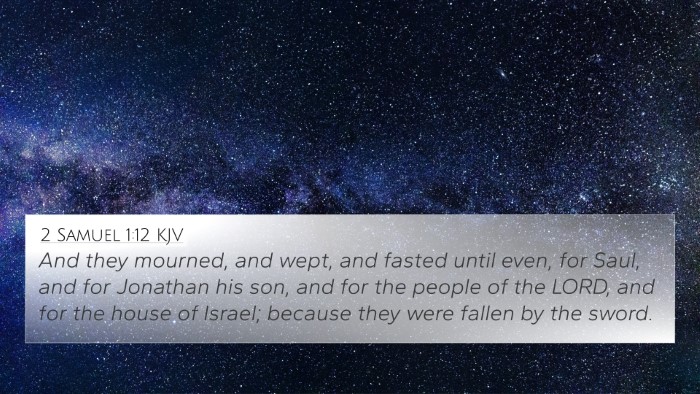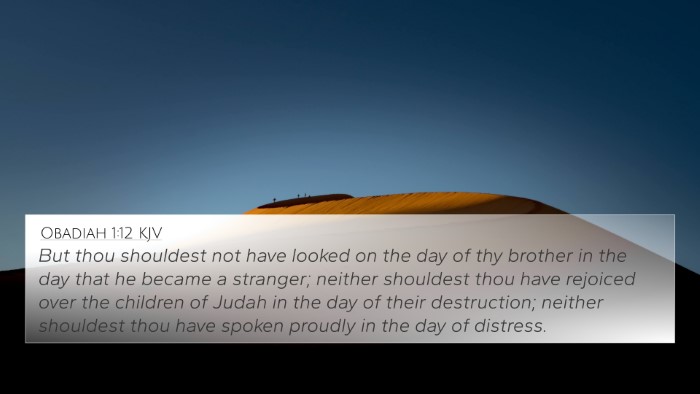Understanding Job 31:29
Job 31:29 states: "If I rejoice at the destruction of him that hated me, or lifted up myself when evil found him." This verse reflects Job's integrity and moral standards as he defends himself against the accusations of his friends. Job insists that he has not rejoiced at the misfortune of his enemies, which highlights his righteousness and compassion.
Context and Overview
Job is responding to the intense scrutiny from his friends who accuse him of wrongdoing, prompting his suffering as consequence. This moment is particularly crucial as Job outlines his ethical conduct and the principles by which he has lived his life.
Commentary Insights
-
Matthew Henry:
Henry emphasizes the moral integrity of Job, asserting that a truly righteous person cannot find joy in the downfall of others, even those who might be considered enemies. This principle underlines the Christian tenet of love even for one's enemies.
-
Albert Barnes:
Barnes explores the idea of retribution and the proper response to the misfortunes of others. He encourages readers to reflect on their own hearts and the attitudes they harbor toward those who may wish them ill.
-
Adam Clarke:
Clarke highlights the theological significance of Job's statement, noting that it conveys the essence of true compassion and integrity, reinforcing that one's spiritual health is linked to how one views and interacts with others, particularly adversaries.
Thematic Connections
Job's statement invites further exploration into the themes of righteousness, justice, and compassion throughout the Scriptures.
Bible Cross-References
- Proverbs 24:17-18: Guidance on not rejoicing in the fall of one's enemy.
- Matthew 5:44: Jesus instructs to love enemies and pray for those who persecute you.
- Luke 6:27: A reiteration of the theme of loving enemies.
- James 1:20: Speaks about the wrath of man not producing the righteousness of God.
- Romans 12:19: God's vengeance, reminding not to take revenge, emphasizing divine justice.
- 1 Peter 3:9: Encourages not to repay evil for evil, but to seek reconciliation.
- Proverbs 11:10: Highlights that the well-being of the righteous brings joy to the city, contrasting with the outcomes associated with wickedness.
Application of Job 31:29
Understanding this verse challenges readers to assess their own responses to the misfortunes of others. It serves as a reminder to cultivate compassion and avoid bitterness, encouraging a life aligned with the teachings of Christ regarding love and mercy.
Conclusion
Job 31:29 encapsulates the essence of moral integrity and the call to love and not rejoice in the failures of others. Linking this verse with other scriptural references provides a deeper understanding of its place within the broader biblical narrative regarding ethics, relationships, and spiritual conduct.
Additional Resources
If you wish to explore more about cross-referencing Bible verses, consider using tools for Bible cross-referencing and a comprehensive Bible concordance to find thematic connections and parallels. Engaging in cross-referencing allows for a richer experience and deeper understanding of the interconnectedness of Scripture.










